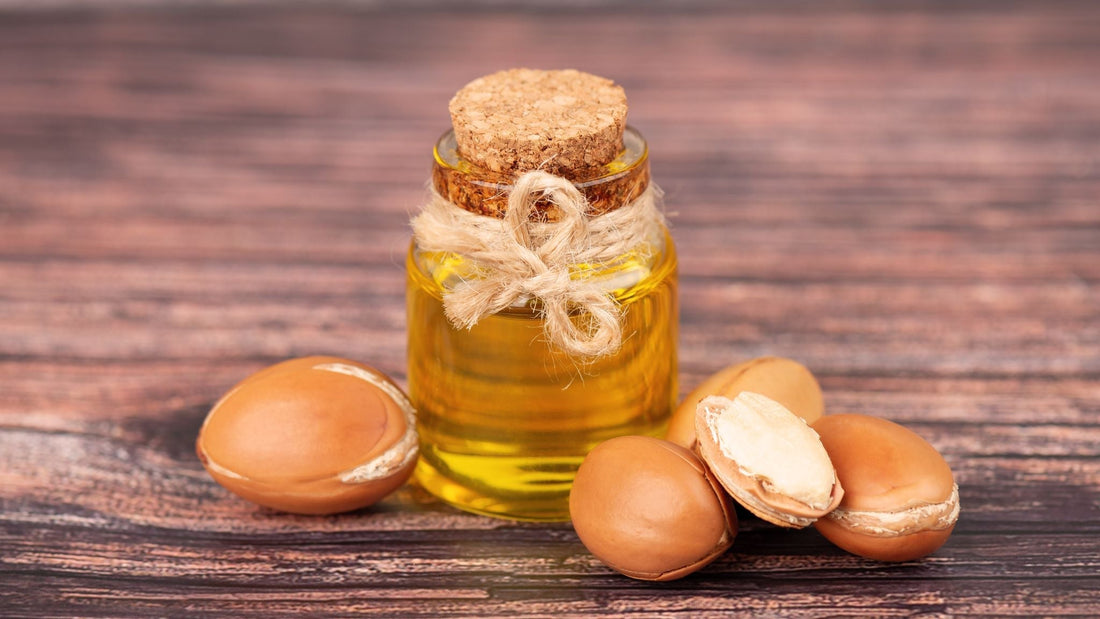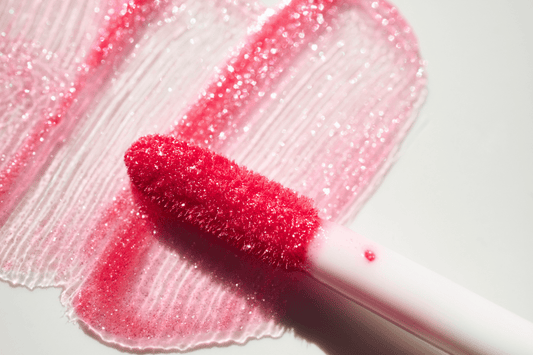Argan oil is all the rage in the beauty industry right now, and for good reason! Packed with vitamins and fatty acids, it's a powerhouse ingredient for skincare and haircare products.
But behind the scenes, the beauty industry isn’t so glamorous.
Today, we're here to expose the truth behind ‘pure’ argan oil.
Have you ever wondered if the argan oil you're using is truly pure?
We believe in transparency and honesty, so let's uncover the facts together.
Contents
- What Are You Really Buying?
- What is Argan Oil?
- What Types of Argan Oil Are There?
- The Truth About The Argan Oil Industry
- How is Argan Oil Adulterated?
- How to Prevent Buying Adulterated Argan Oil?
- Conclusion
What Are You Really Buying?
We tested 6 samples from different online suppliers. All of them failed the purity tests.
That’s right. All of them!
Most of the samples were a blend of sunflower, palm and soybean. One of them was just 100% sunflower oil!
People are being ripped off, pure and simple.
Shocked? Keep reading to find out how to stay away from the adulterated oils.

What is Argan Oil?
Argan oil is a natural oil derived from the kernels of the argan fruit. The argan tree is a slow growing shrub that grows in the wild across Morocco. It is extracted through cold pressing and is golden in colour.
It has great moisturising properties and is suitable for all skin types. Argan oil is also non comedogenic, meaning it does not clog pores. It can be used in hair masks, moisturisers, body creams, and conditioners.
What Types of Argan Oil Are There?
There are two main types of argan oil that are produced in Morocco:
- Culinary argan oil
- Cosmetic argan oil
These types are very similar, but the main difference is that argan kernels for culinary argan oil are toasted before they are extracted.
There is a big difference between good quality argan oil and bad quality argan oil. Goats climb the argan trees and eat the argan fruit. The argan kernels aren’t digested by the goats, and the kernels are picked out from their poop by some producers.
Needless to say, this doesn’t create great quality argan oil.

The Truth About The Argan Oil Industry
Unfortunately, adulterated argan oil is very common. If you go to Morocco you will see argan oil everywhere. But 100% pure argan oil is difficult to find even when you go directly to the producers.
Then once you find a producer, it’s not even guaranteed you’ll get oil that they’ve actually made. It could be someone else's production. So you think you are buying from someone you trust, but the oil is being made by someone else so who knows if it's really pure?
To complicate things even further, some big companies produce “equivalent” or “formulated” argan oil. This is argan oil that has been diluted with other vegetable oils, like olive oil or soybean oil.
These blends are often brought into the UK by wholesalers and resold as just ‘argan oil’ to retailers.
Let’s break that down. The oil is adulterated at source. Stock is switched between producers. It’s sold as ‘argan oil’ even if it has no argan in it.
That’s how you end up with 100% of samples failing the purity tests for argan oil!

How is Argan Oil Adulterated?
Producers will create their own fake version, mixing cheap oils until they have something that looks just like argan oil. But none of them have any argan oil in them!
How can we tell?
Let’s look a bit deeper into the technical side of natural oils….
Natural oils are mostly made up of Triglycerides, which are molecules containing fatty acids. There are many types of fatty acids, with names like Oleic Acid, Linoleic Acid etc.
Oils are usually described by their fatty acid profile, which tells you what percentage of which fatty acid is in the oil.
Here’s an example of the fatty acid range for pure argan oil:

How Do They Get Away With It?
Fake argan oil is designed to have a similar fatty acid profile to pure argan oil. This also means they feel relatively similar on the skin.
Here’s the results of one “argan oil” that we tested. It contained absolutely no argan oil: It was made from sunflower oil, palm oil and soybean oil. We have also put this next to the fatty acid profile of 100% pure argan oil:

These results may look very similar, but there are lots of big differences that show the blend is not argan oil.
The stearic and oleic acids are out, as are the linolenic and behenic acids. However, the difference isn’t drastic.
From the tests we did, that’s what it looks like most people in the UK are selling. Apart from three exceptions, which were just 100% sunflower oil…
How to Prevent Buying Adulterated Argan Oil?
The only way to guarantee you are using 100% pure argan oil, is by testing the oil at a third party lab.
Checking COA’s can catch a few fake oils, but not every COA gives it away.
This is where it can get even more complicated. It is also possible for the oil to be pure but not match the specification on the COA.
Argan (specifically argania spinosa kernel oil) has a wide genetic diversity compared to other popular seed oil plants. It is also grown wild all over Morocco and by a number of different co-operatives.
So producers make the oil with kernels from different areas, and that have grown in different weather conditions or altitudes. This can have a significant effect on the final composition of the oil.
So if lab testing is the best way to check if it’s pure, then why isn't everyone doing this?
Well, for one, it can be costly and time-consuming. You also need to have a good understanding of what to test for to ensure that you're getting the real deal.
Here’s what you can do to reduce your chances of buying from dishonest suppliers:

If you don’t know what is in the oil, then is it really safe to use?
Adulterated argan oil can contain many different oils, so the risk of negative side effects is pretty high. This is one of the many reasons why it is so important to buy from trusted suppliers.

Conclusion
The bottom line is, you're being ripped off. 
So stop and think, is the argan oil I’m using really argan oil? Is it too cheap to be true? Does my supplier actually know exactly what is in the oil?
Argan oil is an incredible natural oil that works wonders for skin, so take action to ensure you get exactly what you order!
Our promise: We will only sell 100% pure argan oil. We know exactly who has made it, Andy has visited them and seen the production taking place. We also test our argan oil at a third-party lab to be sure it is pure.
Continue Reading
Now you have read all about the purity of argan oil, why not continue reading?
- Learn about clove oil for toothache: Does it work?
- Make your own soap with our simple argan oil melt and pour soap recipe!
- Interested in our essential oils? Learn about the sustainability of our ylang ylang oil.
Let us know your thoughts on the purity of argan oil in the comments!



